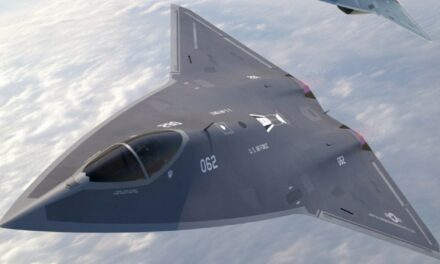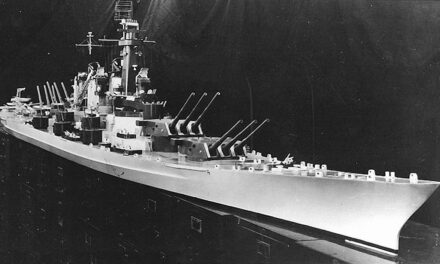We support our Publishers and Content Creators. You can view this story on their website by CLICKING HERE.
A consensus has allegedly developed that Washington should sponsor negotiations with Russia over the war in Ukraine. According to this concord, the agreement must, regretfully but unashamedly, concede that Ukraine renounces its lost territories, forego membership in NATO, and accept some nebulous, undefined form of peacekeepers along its thousand-mile border with Moscow. Nowhere in these plans does anyone insist upon the termination of all acts of war or conducting of war crimes trials, nor do these so-called experts seriously examine the details of security guarantees for Ukraine. In other words, they all recommend that President Trump initiate a negotiation process that betrays Ukraine’s independence, territorial integrity, and survival as a state and nation upon taking office.
Although the authors of this consensus do not say this clearly, we can. Suppose Trump follows through on these recommendations, even including negotiating over Ukraine’s head, i.e., directly with Russia without Ukraine. In that case, he will betray Ukraine and throw Europe into a generation of war. At the same time, both the US public and history will brand Trump as a loser. It is inconceivable that President Trump wishes to be remembered as a loser or the contemporary analog to Neville Chamberlain, but that will happen if he follows these recommendations. Indeed, negotiating along the lines of this consensus represents an act of irresponsible statecraft for Trump, the US, and NATO.
As it is, Putin, smelling weakness, has already rejected early terms and raised the ante, demanding the end of the Ukrainian state.
There are several reasons for making this assertion. Among the primary reasons for doing so is that the claque demanding negotiations has consistently, if not willfully, failed to grasp what this war is all about. Therefore, they either blinded or misled their readers concerning its nature and consequences. Despite Moscow’s “firehose of falsehood” that Nazi Ukraine oppresses Russian citizens or that, as a supposed client of NATO, it represents a threat to vital Russian interests, precisely the opposite is true, as is often the case with Russian propaganda. Neither Ukraine nor NATO threatens Russia, nor has NATO threatened the Russian Federation since 1991, quite the opposite.
If war broke out tomorrow, NATO would be hard-pressed to defend its members, and everyone knows it. The Baltic States, since 2004 and now Sweden and Finland, have never threatened Moscow, and Russia knows this. Nevertheless, Russia has consistently harassed these states right up to the present, thereby justifying their NATO membership.
Understanding the War Ukraine War
Those arguing for negotiations refuse to accept that this war is about two linked ideas, namely the preservation and extension of Russia’s autocracy, which has historically ruled through empire and seeks to do so again. Indeed, the Russian state has always been an empire. Autocracy and empire have been conjoined at the hip throughout history. Neither is complete without the other.
As George Vernadsky, a great Russo-American historian and one of the founders of Russian studies in the US, observed, “Russian liberalism stops at the border of Ukraine.” Indeed, Putin has not only claimed that Ukraine is Russia and that an independent Ukraine represents a betrayal of Russia, but he has also repeatedly stated that Russia is the Soviet Union or that the latter’s territory constitutes “Historic Russia.” In other words, his ambitions reach out to the Baltic, Central Asia, Moldova, and to the Middle East, which allegedly constitutes Russia’s, i.e., the USSR’s “strategic borders.”
Thus, this is a war to restore the Russian empire, which remains incomplete without Ukraine. Unfortunately, empire means war, as no concept of European security is compatible with a restored Russian empire.
Moreover, to restore the empire and thus Russia’s classical autocracy, it is not enough to destroy Ukraine’s democracy – the main threat to Putin if not Russia – rather, the very idea of Ukrainian independence and statehood must be annihilated. More straightforwardly, that means this war must be a genocide as it is against Ukrainians until they accept the idea, forcibly imposed upon them, that Ukraine is Russia. Neither is this the first attempted Russian genocide of Ukraine.
Russian President Putin. Image Credit: Creative Commons.
The idea that a negotiation, of whose results Putin will not abide by, can resolve these issues is frankly nonsense. Neither should Trump and his team buy it. Allowing a Russian victory ensures permanent war across Eurasia. It stimulates China, Iran, North Korea, and others to challenge the US in the belief that Washington lacks the will to defend its interests. Thus, if Trump wants to be known not as a loser but as a peacemaker, there is really only one way forward, namely supporting Ukraine until it wins. This author has previously outlined this strategy, and Trump, his team, and Congress can also find their way to it.
Upon mature reflection, it will become apparent to them, as it has to many other analysts too, that in Ukraine, not only is there no substitute for victory but also that victory is not everything; rather, it is the only thing.
About the Author: Dr. Stephen J. Blank
Dr. Stephen J. Blank is a Non-Resident Senior Fellow in the Foreign Policy Research Institute’s Eurasia Program. He has published over 900 articles and monographs on Soviet/Russian, U.S., Asian, and European military and foreign policies, testified frequently before Congress on Russia, China, and Central Asia, consulted for the Central Intelligence Agency, major think tanks and foundations, chaired major international conferences in the U.S. and in Florence; Prague; and London, and has been a commentator on foreign affairs in the media in the U.S. and abroad. He has also advised major corporations on investing in Russia and is a consultant for the Gerson Lehrmann Group. He is the author of Russo-Chinese Energy Relations: Politics in Command (London: Global Markets Briefing, 2006), and Natural Allies? Regional Security in Asia and Prospects for Indo-American Strategic Cooperation (Carlisle, PA: Strategic Studies Institute, U.S. Army War College, 2005). Dr. Blank is also the author of The Sorcerer as Apprentice: Stalin’s Commissariat of Nationalities (Greenwood, 1994); and the co-editor of The Soviet Military and the Future (Greenwood, 1992).

 Conservative
Conservative  Search
Search Trending
Trending Current News
Current News 





